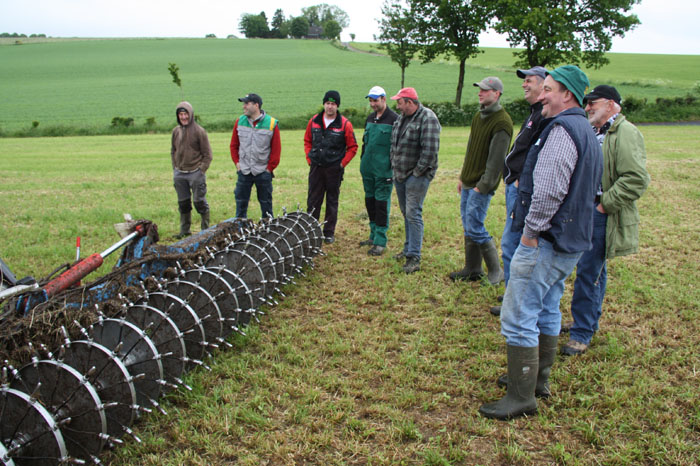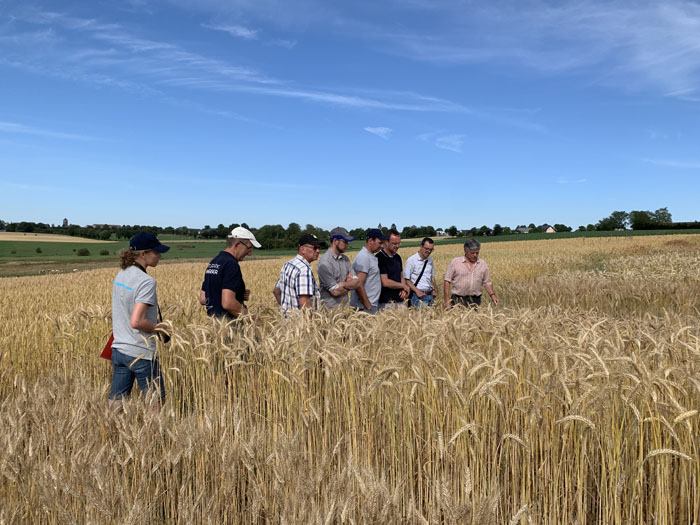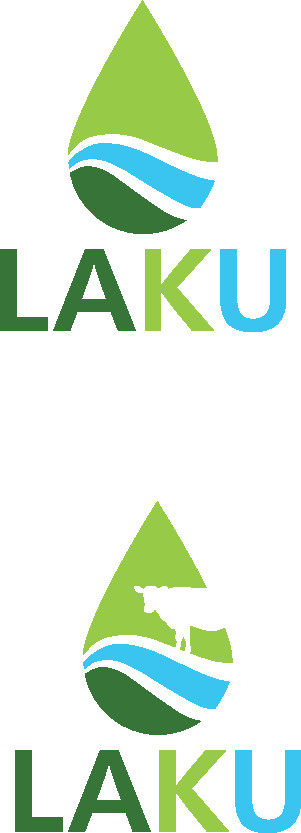Case Study
Cooperation between the drinking water supplier, the Nature Park and farmers to conserve water without economic disadvantages
Contact name
Frank Richarz
Institution name
Nature Park Öewersauer
Region & country
North-West of Luxembourg
Summary
The aim of the cooperation is to improve water quality in the national drinking water reservoir through information, cooperation and financial incentives for technical measures. The initiative originated in a Nature Park working group on agriculture in the nature park, where the common goal was formulated on an equal footing with all partners. Reservations and barriers to action between the agriculture and water-conservation interest groups were reduced, allowing a promotion program with a national impact to be developed. Some innovative alternative agricultural techniques and local cooperation between farmers and the drinking water producer were newly developed and applied for the first time in Luxembourg.

Austausch zur exakten Ausbringung von Mineraldünger mit dem Nagelrad
Nature Park Öewersauer

Begehung von ökologisch bewirtschafteten Getreidefeldern
Nature Park Öewersauer
Background of the project
The issue of the discharge of nutrients and pesticides from agricultural land into rivers, lakes and drinking water reserves has until now been addressed through sets of legal regulations, agricultural advisory organizations or bilateral cooperation between individual farmers and nature conservation organizations.
The negative image the public has of agriculture, coupled with end-consumers’ unwillingness to pay reasonable prices for quality food, is the conflict area in which many farms find themselves. The key to success was the need to analyse the situation of agriculture unreservedly and to develop and financially support measures, with the readiness of the farmers who sit on the executive board.
Solution and actions taken
The exchange of information at executive board meetings, in working groups and during excursions, e.g. on water pollution, economic-efficiency comparisons of mechanical and chemical weed control methods and pesticide inputs led to an understanding of the partner’s problems. In particular, joint formulation of solutions and the financial and political opportunities created by institutionalization of cooperation led to increased motivation and concrete implementation.
- Directly involving farmers on bodies and in decision-making processes
- Straightforward financial support for additional expenditure incurred by agriculture on practices geared to water conservation
- Appearing and negotiating jointly with ministries, administrations and entrepreneurs
- Exchange of information on water and soil data and profitability calculation
- Data transparency among the partners on management data or water analyses
Other institutions or parties involved
- Farmers – are willing to adapt their use, sit on the executive board
- Drinking water supplier (SEBES) – willing to pay subsidies, sits on the executive board
- Nature Park – technical know-how, staff resources, sits on the executive board
- Ministry and administrations – decisions on subsidies, counselling
- Agricultural advisory organizations – exchanges among experts, application for subsidization measures
- Contractors – implementation of technical measures, investment in innovative technology
Results
- Approx. 73% of the catchment area are now areas of members of the LAKU project
- There are 86 member farms in total
- Participation in a liming measure: 49 farms (57% of members)
- Participation in the soil sampling concept: 52 farms (60%)
- Strip-till: 5 farms (6%)
- CULTAN slitting process: 6 farms (7%)
- Disk-based application: 14 farms (16%)
- Hoeing: 5 farms (6%)
- Participation in mechanical weed control: 6 farms (7%)
Challenges
- Few opportunities for participation under the new protection-zone regulations
- Little replication of the solutions set out in the protection-zone regulations
- Major concerns expressed by the water authorities about the project
- Administrative barriers
- Too little participation by the members in concrete measures
- Reservations about conventional agriculture
Lessons learned
- Involve the farmers themselves
- Meet on an equal footing without prejudice
- Urge skeptics to formulate constructive approaches to solutions
- Formulate goals
- “It’s not always necessary to analyse the overall situation in advance and to discuss it at length; things that are already clear anyway must be implemented right from the beginning”.
Other resources
Contact name
Frank Richarz
Institution name
Nature Park Öewersauer
Website(s)
